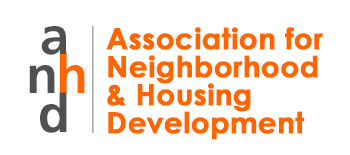New York’s supply of privately-owned affordable rental housing is again threatened by overleveraging, as occurred all too often after the 2008 economic crisis. Over-leveraging occurs when developers, aided by lenders, purchase rent-regulated apartment buildings at exorbitant prices, believing they can move out lower-rent paying tenants to quickly de-regulate the units and raise the rents. All of this is done in order to pay back often unsupportable mortgages and generate large profits. However, many of the loans on these building portfolios went bust when the housing bubble burst, leaving the City and housing advocates to pick up the pieces. Some tenants were harassed and pressured to leave, while many others were forced to live in poor housing conditions because landlords deferred necessary maintenance.
One overleveraged portfolio that housing advocates first became concerned with years ago is now in foreclosure. Tenants and housing groups are worried the distressed loan on the buildings will be sold again to someone who will continue the destructive, speculative strategy. The portfolio, called the Three Borough Pool, is a group of 42 buildings (1,537 units) spread across Manhattan, Brooklyn, and the Bronx. The buildings are all rent-regulated, and 32 receive some form of government subsidy through project-based Section 8 contracts and J-51 tax abatements. All have long provided crucial affordable housing to low- and moderate- income New Yorkers, but their future is uncertain because these owners took out a troubled loan that is now both in default and in foreclosure.
The buildings’ fates now lie in the hands of a Special Servicer appointed by the mortgage-backed security holding the loan on these buildings. The servicer has stated that they will give the current owners more time to refinance before moving forward with the foreclosure process. However, community organizers have seen many similar situations in the past and know that without an intentional preservation strategy, the cycle of harassment, distress, and foreclosure will continue and tenants will face deteriorating housing conditions and displacement pressure. According to a recent New York Daily News article (Tenants of ‘3 Boro Pool’ say private equity owners are keeping them in dark), tenants have been extremely unhappy with the current management company and do not want the servicer to give them a second chance. In the article, Kerri White, the director of organizing and policy with the nonprofit Urban Homesteading Assistance Board that’s organizing tenants in the buildings, says, “The idea that these owners who have clearly failed these properties may retain control of them is shameful.”
The portfolio is owned by a joint venture of four parties, one of which is Vantage Properties. The 42 buildings are managed by Colonial Management.
- Vantage has a well-documented history of over-leveraging and subsequent harassment. In 2010, they entered into a one million dollar settlement with the NY Attorney General’s office. They have since fallen behind on mortgage payments and lost control of many buildings.
- The Three Borough Pool buildings are currently being managed by Colonial Management. Many tenants in these buildings report displacement pressure and lack of repairs and services. Some report threats and intimidation by management when they try to organize. According to the Daily News, “Tenants also said they were denied access to community rooms, tricked into signing letters of recommendation for the delinquent landlords and forced to live with unheeded requests for repairs” (Tenants of ‘3 Boro Pool’ say private equity owners are keeping them in dark, 1/28/14).
- According to the underwriting documents in the mortgage-backed security, the owners have defaulted on a $133 million mortgage that was made with a Debt Service Coverage Ratio of 0.72. That means that the building only earns 72 cents for every dollar it needs to operate, and is generally a sign that the building is over-leveraged and that the landlord is likely to cut maintenance and/or push-out long-time tenants to bring in higher-paying tenants. Community organizers report that the owners tried to do just that, but the strategy failed and the portfolio was put into foreclosure.
- University Neighborhood Housing Program’s Building Indicator Project (BIP) is a widely used indicator of distress in multifamily housing. A “BIP Score” over 800, calculated based on a combination of violations and liens, indicates a building is very likely in physical and/or financial distress. 23 of the 42 buildings have BIP Scores over 800 and another 11 have scores over 500.
- The buildings have over 2,500 open HPD violations and over $7.7 million in city liens.
 ANHD 2016 Building the Community Development Movement
ANHD 2016 Building the Community Development Movement
